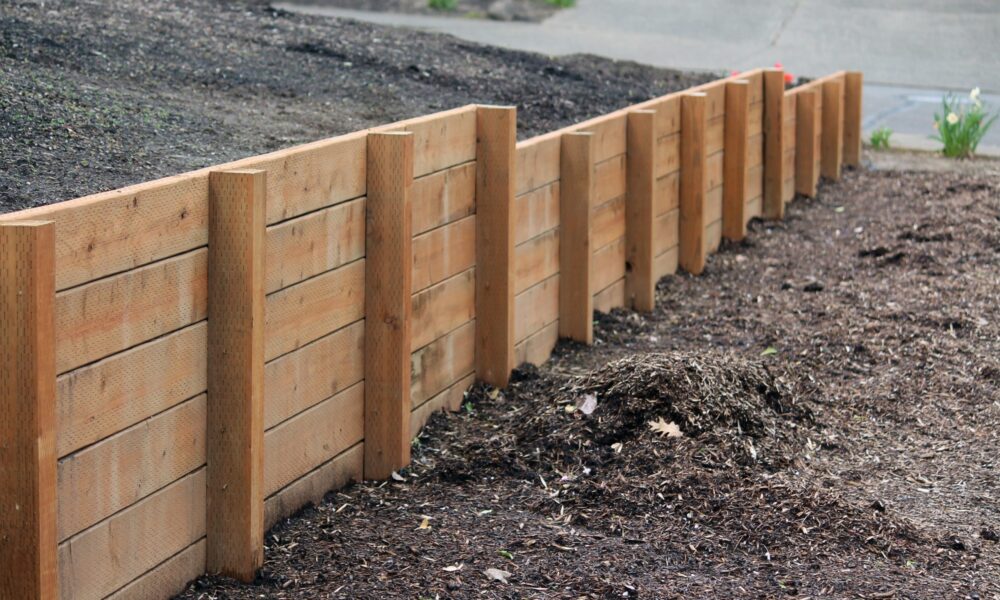Retaining wall disputes are becoming increasingly common, often leading to significant legal challenges. These disputes typically arise due to disagreements over the construction, maintenance, and impact of walls between neighbouring properties.
Understanding the role of lawyers in these situations can provide clarity and guidance. They keep themselves updated on the retaining wall laws in QLD, which ensures that disputes are resolved fairly and efficiently.
Legal Framework Governing Walls
In Queensland, the legal framework surrounding retaining walls is multifaceted, involving various laws and regulations. These are primarily governed by local council regulations, the Neighbourhood Disputes (Dividing Fences and Trees) Act 2011, and other relevant building codes. Lawyers specialising in such disputes must navigate this complex legal landscape to protect their client’s interests effectively.
Assessing and Advising on Legal Obligations
An important role of lawyers in retaining wall disputes is to assess and advise on the legal obligations of the parties involved. Property owners may be unaware of their responsibilities regarding the construction and maintenance of retaining walls. Lawyers provide essential guidance on these obligations, ensuring compliance with local regulations and building codes. This legal advice can prevent disputes from escalating by fostering a clear understanding of each party’s duties.
Mediation and Negotiation
Mediation and negotiation are critical strategies employed by lawyers to resolve retaining wall disputes. They act as intermediaries, facilitating discussions between the disputing parties to reach a mutually acceptable solution. This approach is often preferred as it is less adversarial and more cost-effective than litigation. Effective mediation can preserve neighbourly relationships and result in agreements that satisfy both parties without the need for court intervention.
Litigation and Court Representation
When mediation and negotiation fail, litigation may become necessary. Lawyers play a vital role in representing clients in court, presenting evidence, and arguing the case before a judge. Litigation can be complex, requiring a thorough understanding of property law, civil procedure, and evidence presentation. Legal experts ensure that their client’s rights are vigorously defended and work towards achieving a favourable outcome.
Expert Evidence and Legal Strategy
Expert evidence can be crucial in retaining wall disputes. Lawyers often collaborate with engineers, surveyors, and other specialists to gather technical evidence supporting their client’s cases. This expert testimony can clarify issues such as structural integrity, impact on neighbouring properties, and compliance with building codes. They develop legal strategies based on this evidence, strengthening their client’s position in both negotiations and court proceedings.
Drafting Legal Documents and Agreements
Another significant aspect of a lawyer’s role in retaining wall disputes is the drafting of legal documents and agreements. These documents may include settlement agreements, consent orders, or other legally binding contracts. Legal experts ensure that these documents are meticulously prepared, clearly outlining the terms agreed upon by the parties. This careful drafting helps prevent future disputes and provides a solid legal foundation for enforcement if necessary.
Cost Management and Legal Fees
Retaining wall disputes can be financially burdensome. Lawyers assist clients in managing these costs by providing transparent information about legal fees and potential expenses. They offer strategic advice on cost-effective dispute resolution methods, helping clients make informed decisions. By managing costs effectively, they ensure that clients receive quality legal representation without unnecessary financial strain.
Protecting Client Interests
Above all, the primary role of lawyers in retaining wall disputes is to protect their clients’ interests. This protection involves ensuring that their rights are upheld, providing sound legal advice, and advocating on their behalf throughout the dispute resolution process. They are committed to achieving the best possible outcome for their clients, whether through negotiation, mediation, or litigation.
Lawyers keep themselves knowledgeable about the retaining wall laws in QLD. From navigating complex legal frameworks to providing expert advice and representation, they play a crucial role in resolving these disputes. Understanding the various functions lawyers perform can help property owners appreciate the importance of legal assistance in such disputes. This helps in ensuring that their interests are protected and disputes are resolved fairly.
